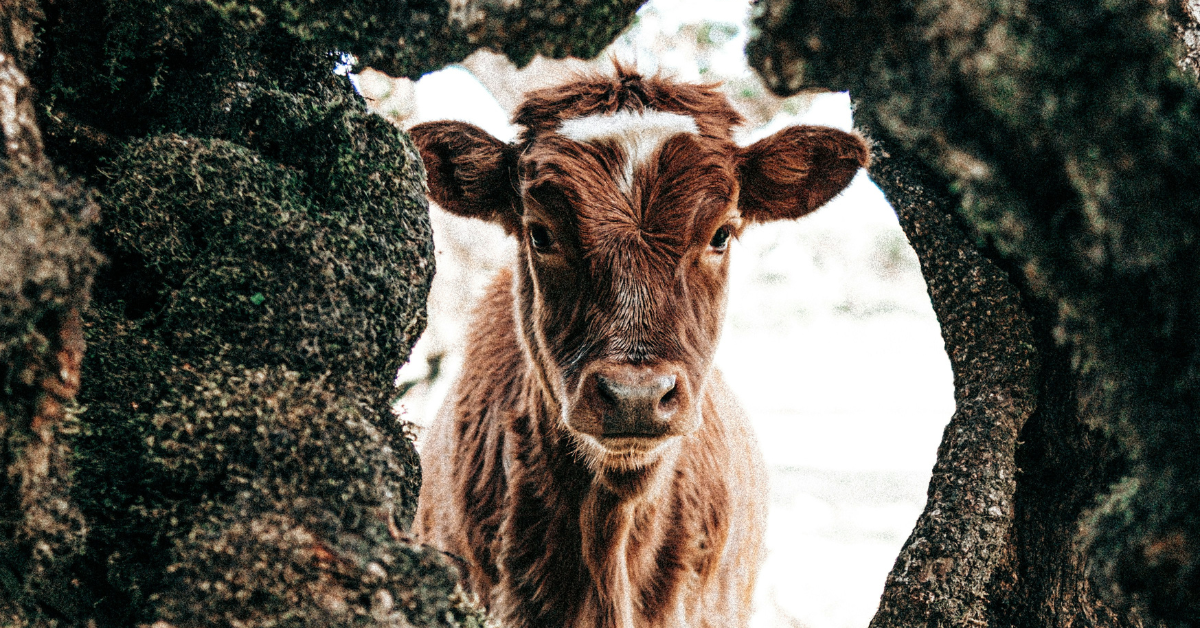By Dustin Rhodes
Ever since I started working fo Friends of Animals, I’ve been obsessed with one particular question: How do we inspire people to be vegan?
That feels like the most salient thing we do, especially now that scientists, too, agree it’s one of the most effective ways to address the climate crisis; we already know it’s the best way to end the exploitation of animals.
I hear many vegan advocates talk about how “easy” it is to embrace a vegan lifestyle, but I don’t think veganism is always perceived this way, and I am not convinced it’s a compelling message for potential vegans. It actually is pretty easy to be vegan. But I talk to people every day who proclaim their love for animals while also eating them at every meal, which drives home the fact that most people do not perceive it as an easy choice.
Many people express a desire to not eat animals, while also claim that the choice sounds “too difficult,” “extreme.” And, sadly, vegan recidivism is quite high. Over the past 20 years, I have known dozens of vegans who abandoned it—offering all kinds of excuses.
I once thought these same things, too. And, full disclosure, I struggled with some aspects of veganism even after I had made the commitment. I missed certain foods, struggled with family gatherings and always having to bring my own food, being invited to events where there was nothing to eat—the usual things that people worry about.
The reason I have stuck with it—aside from being certain it’s the best thing to do for animals—is because a friend gave me some great advice: View veganism as a practice. See it as a lens with which to view the world. Let it be a guide for constantly challenging one’s choices, behaviors, beliefs.
This advice—given to me by Lagusta Yearwood, a vegan chocolatier in New Paltz, New York—completely turned my attitude around, from one of self-centeredness—making veganism all about me— to a lifestyle that focuses on other animals (both human and non-human). Seeing it all through the practice lens, I try again tomorrow. And if I ever start thinking, “this is too hard” or this is a “pain in the you-know-what,” as a practice I come back to my next meal; what I am cooking for dinner? I abandon the thought that “I’ll never eat_________again.”
Seeing veganism as a practice keeps it fresh, alive, relevant—a living moral guide. And I love that.
There is one reality of becoming vegan that no one really warns you about: how threatening veganism is to meat-eaters. We experience it constantly at Friends of Animals when we post a vegan advocacy story on social media. Defensive meat eaters flood our Facebook page, just like they did with Cracker Barrel when that restaurant chain added a vegan sausage item to its menu. Customers swarmed their page, with some calling their decision a “crock” and “garbage” and vowing never to return. The Facebook post quickly drew 11,000 comments compared with the usual 100 or so comments on a typical Cracker Barrel post.
Of course, this is both bemusing and endlessly annoying. Just know you are not alone and please don’t ever abandon your vegan practice, which saves countless animals, because of a group of bullies who think the dismemberment of animals is a better lifestyle than yours.
I am constantly asking longtime vegans: What made you stick with it? Did anyone ever offer sage advice, and if so what?
Gregory Little, a longtime Friends of Animals member and accountant in Philadelphia, told me he was given the advice to, “embrace how radical veganism is.” Greg knew going into veganism exactly what the challenges would be, therefore there weren’t any big surprises. “I had the expectation right at the beginning that it would be a life-changing decision,” Little told me, which empowered him to embrace all of it—the challenges, too.
Teresa D’amico, a board member at Friends of Animals and New York City resident, told me she really didn’t need any special advice. “Reality is the only inspiration I have ever needed,” D’amico offered. “As soon as I realized that not only was eating animals wrong because of who they are, but then learning the truth about the systems of production, I just stopped. No wavering, no going back. I think that’s true with many activists. We didn’t do it for ourselves; we did it for them.”
Barbara Sitomer, also an FoA board member and vegan bakery owner, told me she was really struck by a friend’s vow to herself: “She told me, ‘I made a promise to not harm animals,’ and at the time that really struck me. When I went vegan I was already running a vegan bakery. But I still ate, and made, conventional scones—because I loved them so much. Then my friend pointed out that if I stopped making and eating the scones I’d be vegan, and so I did.”
Maybe all this advice is simply different ways of expressing the same thing—all of it filtered a little differently through our diverse experience of being human.
But I do have my own advice to share, which I hope you will find as encouraging as what I was fortunate enough to receive: Practicing veganism is joyous. The food can be exceptional (especially if you learn to cook); it offers a real sense of purpose—a way to affect change in the world.
Veganism changes you, in the best of ways, especially when you commit to it for the long haul. Most importantly, veganism directly spares animals from the unspeakable misery that is created when humans turn other animals into food.
Veganism minimizes suffering and offers encouragement for being a better person. In every way, it is a gift. What are you waiting for?

